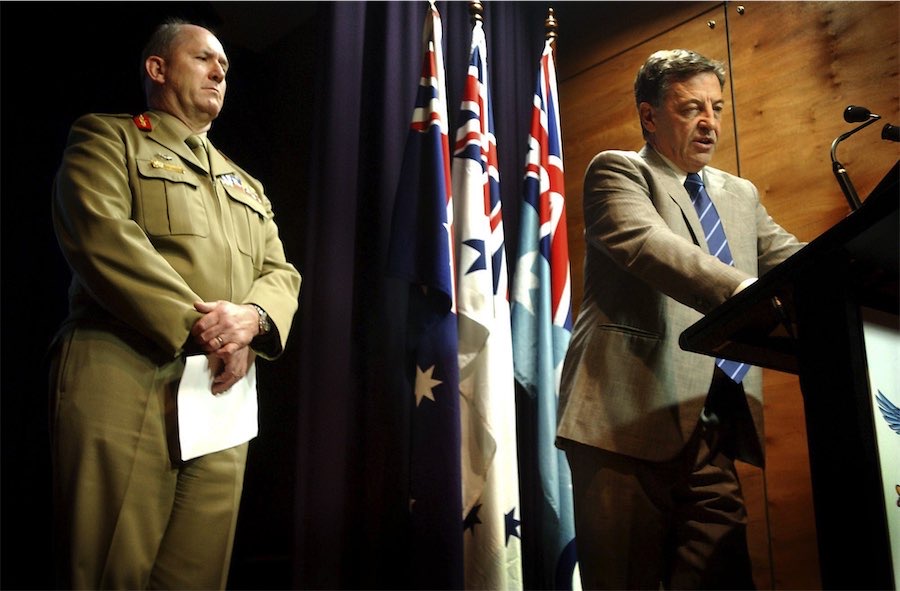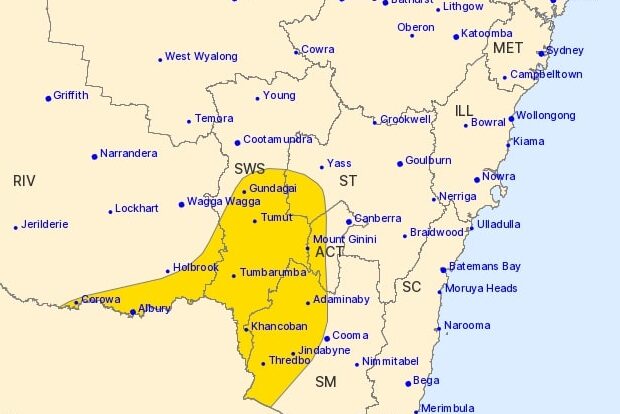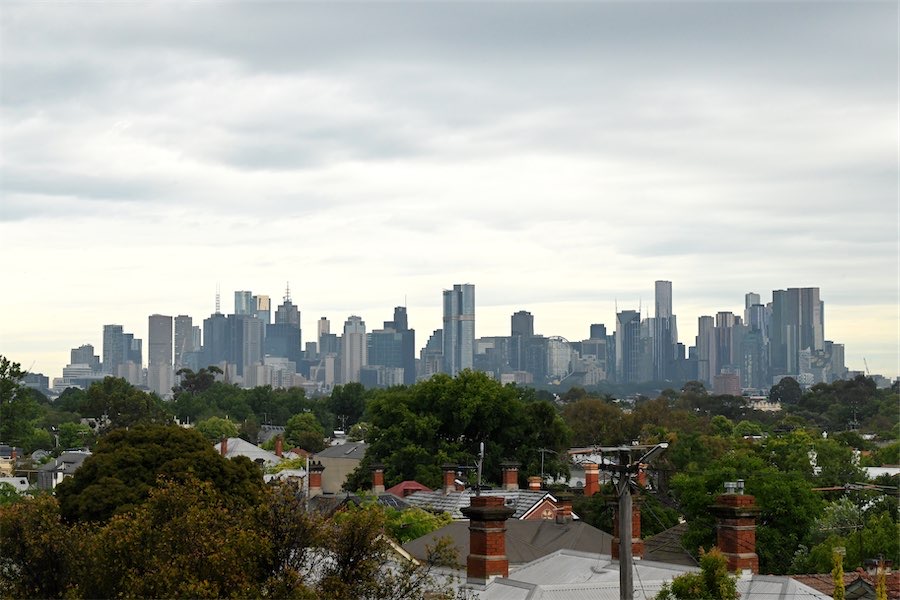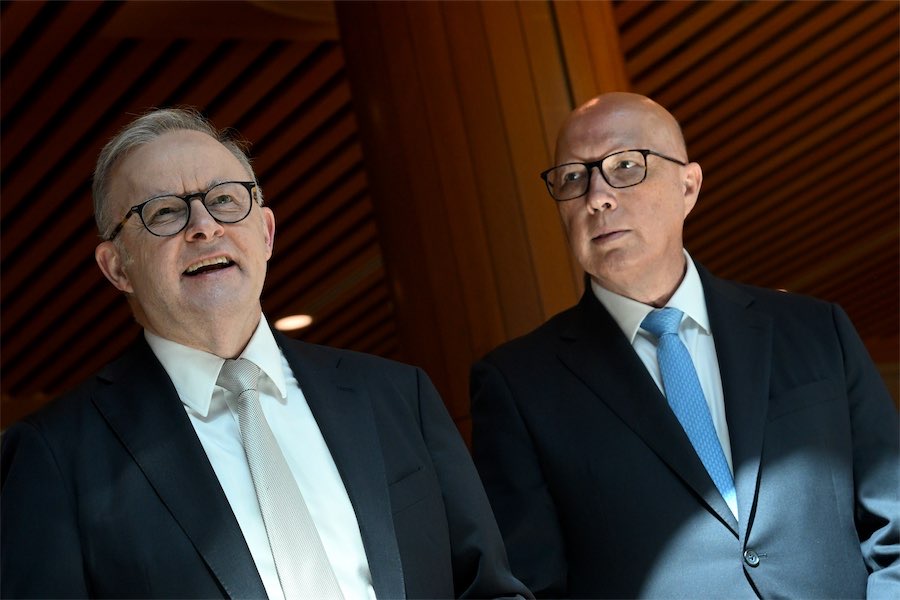
By Andrew Brown in Canberra
HISTORY may show the US-led invasion of Iraq was based on false information, but former defence minister Robert Hill insists the federal cabinet was right to support the war.
Cabinet documents from 2003 released by the National Archives after a 20-year freeze have revealed deliberations about Australia’s involvement in the conflict.
Mr Hill was quizzed about the invasion while in Canberra for the release of the papers.
“Do I still think it was the right decision? On the evidence that was available to me at the time, I believe it was the right decision,” he told reporters.
Most government deliberations on the war will remain secret because it was discussed by the National Security Committee.
Publicly available documents reveal cabinet was briefed by then prime minister John Howard about the looming military action on March 18, 2003, one day before the invasion by a US-led coalition began.
The US claimed the invasion was aimed at disarming weapons of mass destruction, ending Saddam Hussein’s support for terrorism and freeing Iraqi people.
Mr Howard told cabinet he had extensive discussions with US president George Bush and UK prime minister Tony Blair about a use of force in Iraq, should the country fail to disarm weapons of mass destruction.
Military intelligence following the 9/11 attacks and the ongoing war on terror suggested Iraq leader Saddam Hussein had weapons of mass destruction, but in later years would prove to be untrue.
But at the time, cabinet was warned the possession of weapons of mass destruction represented a “real and unacceptable threat to international peace and security”, with Australia at risk should the weapons fall into the hands of terrorists.
Cabinet noted Australia’s goal in the region would be to disarm any weapons of mass destruction.
Legal advice was sought by cabinet as to whether military involvement in Iraq would be consistent with Australia’s obligations under international law.
Then-defence chief Peter Cosgrove provided a briefing to cabinet on the preparedness of the ADF to be deployed to the Middle East, as well as potential risks to Australian forces.
Cabinet discussed the effect the war would have on Australia’s immigration system, with documents noting the conflict would lead to a “probable shortfall” in humanitarian visas.
In one submission, then-immigration minister Philip Ruddock said government arrangements in Iraq would allow for the gradual return of Iraqi asylum seekers who sought protection in Australia following the outbreak of the conflict.
The decision to commit to Iraq led to some of the largest protests in Australia since the Vietnam War, with hundreds of thousands of people taking to streets across the country.
On the same day as cabinet met to discuss committing troops to Iraq, protesters painted “No War” on the sails of the Sydney Opera House.
Despite the large demonstrations, Mr Hill said the public mood at the time of the invasion was mainly supportive and the mass protests had no impact swaying cabinet decisions.
“There was a broad public support for the military operation, not the sort of support where those in favour were marching in the street,” he said.
“The view of cabinet was the majority of Australians thought the action being taken by the Australian government was warranted.”
Simon Crean, who was opposition leader at the time, spoke out against Australia’s involvement in the Iraq War, but said he would support the work of defence personnel going into the conflict.
The documents revealed Mr Howard briefed cabinet two weeks after the Iraq invasion on the military operation and progress of the ADF.
While the early stages of the war ended in May 2003, Australian forces would remain active in Iraq for another six years.
Who can be trusted?
In a world of spin and confusion, there’s never been a more important time to support independent journalism in Canberra.
If you trust our work online and want to enforce the power of independent voices, I invite you to make a small contribution.
Every dollar of support is invested back into our journalism to help keep citynews.com.au strong and free.
Thank you,
Ian Meikle, editor





Leave a Reply